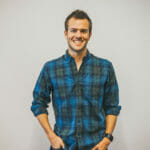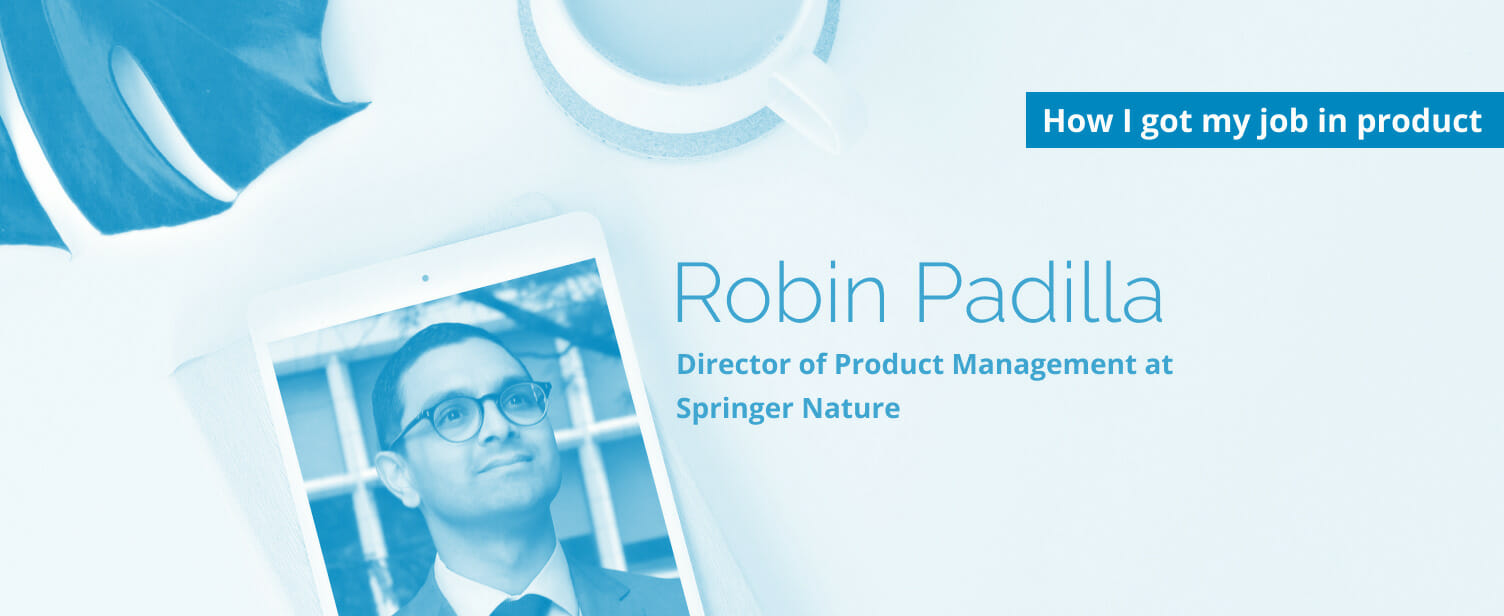Anyone you go to for career advice will emphasise the importance of building a strong professional network. It can help your career development, help you access job opportunities, help you learn and access new information, gain different perspectives, build strong professional relationships and more. There’s plenty of evidence for the value of a professional network - this 2016 research from LinkedIn shows that 70% of people were hired at a company where they had a connection, and 80% of people think a professional network is important to career success.
But how do you build your network? Do you just ask to connect with people you find interesting or vaguely hope might help you on LinkedIn? Or is it all about working the room at a specialist event and making small talk? We’ve spoken to some well-established senior product people to find out what has worked for them and what advice they have to offer for people trying to expand their professional universe.
Adam Warburton is at the very start of fulfilling a long-held ambition - to do something entrepreneurial and run his own business by founding and developing a startup. We’re waiting for the precise details of what Rove’s mission will be, but Adam says he and his business partner have already had a couple of offers of investment and strong interest from potential customers.
A lot of product managers in the north west of England will have come across Adam - he was an organiser of ProductTank Manchester for a number of years and a driving force behind the MTPEngage Manchester conferences that ran for a couple of years prior to the pandemic. He was also Chief Product Officer at the Co-op for more than five years, and most recently was Chief Product Officer at product intelligence scale-up Vypr. For now, he’s dividing his time between fractional product management work and getting Rove up and running.
He points out that he’s made the mistake that many of us make, which is not to bother about building a network until we think about a new job. Over the last two years, he had made use of his existing network to hire people but that was the extent of it. He hadn’t invested any time in external work, had done no public speaking and had had very little involvement with ProductTank. He says: “When I thought about people I’d been in touch with over the previous six months who I could talk to about my next move, there was no one. That taught me a lesson - don’t let your network go dry.”
Adam divides his professional network into two - his known network, people he can lean on and speak to, where there's trust, credibility and reciprocity, and a following with low-value connections like much of his LinkedIn network. He says: “I’ve just had a message from a recruiter asking me to introduce them to someone in my LinkedIn network. I’ve no idea who they are, and no frame of reference for introducing them, I’d just said yes when they asked me to connect. That’s a connection of no value.”
Being a ProductTank Manchester organiser and helping to scale it over a number of years played a huge part in developing Adam’s network. He says it was an immensely valuable learning experience and boosted his credibility. “You start to get to know people, you speak at events and demonstrate your credibility in action,” he says. “I was finding speakers every month, networking with people who attended.”
Adam readily admits he’s not a natural networker. “I have huge anxiety about it,” he says. Much of the advice on overcoming this sort of anxiety focuses on preparation - learning about the people you’ll meet, prepping questions and so on - but Adam doesn’t do this. “I want to be authentic. I feel that if I overly prepare, then I just have a list of questions in my head and I'm not really listening to what the person is saying. I think people like to talk about themselves and talk to someone who’s curious.” His advice is to put your ego to one side, and not try to impress anyone: “If you can be a person who takes an interest in other people, you’re going to be the kind of person that people want to talk to anyway.”
If you’re trying to build your network, as opposed to a following - or even if you already have a good network - Adam’s advice is still to go to events, put yourself out there and speak. He says:
“
Everyone's got their own story, it doesn’t matter how much experience you have. I've worked in product for over 10 years and I could learn something from someone's first month. Even if it's a five-minute talk, or the first time you've got on stage, everyone will want to talk to you.
”
William Joseph is a UK product design agency and certified B Corp. Its strap line is “Equity by design”, it designs inclusive products, services and brands for the third sector. Recent clients include NSPCC, Great Ormond Street Hospital Children’s Charity, Breast Cancer UK and Battersea Dogs Home.
James Gadsby Peet leads the company’s work across UX, content strategy, analytics, search, digital marketing and solution architecture. He’s also been a ProductTank London organiser for the last eight years. William Joseph’s work, he says, comes from his own personal network that he’s built up over a number of years and the network that’s been created by the company’s past work.
The widely held view of networking, he says, is the “very extroverted white male version of it, working in the room and chatting to people”, which lots of people find very difficult. He counsels that everyone has to find a way to network that is easy for them and says there are lots of opportunities for people to build their networks without having to take this very extroverted kind of approach. He’s written an advice piece on networking for people in the charity sector, and says there are parallels with product management. He says: “It can be writing, or volunteering at events, backstage, rather than in front of the stage. Those can be online or in-person events.”
James also advocates joining communities of practice, where questions come in constantly. He says,
“
People can really build their reputation by spending time answering questions and posting and engaging in that community without ever leaving their house. So it's a huge benefit from an accessibility and diversity perspective.
”
What terrifies people about networking is not having anything to talk about, not having a starting point, he says. If you can find ways to get to a starting point then it should become much easier. He sees an increase in networking opportunities that aren’t so much of a “blank page” and give people a reason to talk to each other professionally. For example, William Joseph is involved in a charity book club (its tagline is “networking without networking"). The books tend to be on socially conscious topics, says James, and the people who attend work in the charity sector. He says: “It gives a starting point to a conversation and it gives people a reason to connect rather than just being in a room with horrible white wine and canapes.”
James says he first became a ProductTank volunteer to help build his product management skills. He echoes Adam’s view: “I think it's really important for people to realise that networking is all about curiosity.” He advises reframing conversations as being “less about me selling myself or trying to come across well, and more just genuinely finding out about another person's perspective. That's a less intimidating kind of conversation”.
Evie Brockwell has been a product coach and consultant for the last two and a half years. Prior to this, she was Group Product Manager at Booking.com. Since working for herself she’s started a product management podcast, Product Confidential. She’s a digital nomad, taking advantage of being able to work remotely. She’s just returned from 10 weeks in southern Europe and is planning a trip to Norway next. She left university only nine years ago, so her trajectory to consultancy has been pretty swift.
She’s had lots of formal training on the importance of building a network - as part of her business degree and during the graduate scheme she joined after university - and says this training undoubtedly helped her move into consultancy so early in her career. She also says it’s important to make a distinction between building genuine connections and racking up names and connections for your LinkedIn network.
Not that a LinkedIn network isn’t important, Evie adds, but she suggests using your LinkedIn profile to further your personal brand: “I always say you should figure out what you want to be known for,” she says. Even if you don’t have a long-term vision, you probably know what parts of your work you love doing and where you want to take your career in the next two to three years. “Then just post once or twice a week on one of those topics. Focus on writing rather than sharing, and comment on anything that looks interesting to you.” Doing this makes it much easier to contact people and apply for jobs, she says.
If you find starting those networking conversations, either in person or online, hard, Evie recommends treating them like an experiment. She says:
“
Detach yourself from the outcome and just say, I'm going to try sending to 10 DMs this week and see what the outcome is. That helps you see it more as a game and not to worry about it so much.
”
Jason Knight’s successful podcast, One Knight in Product, has been running for over four years or 200+ episodes. He’s been a fractional product leader for two years. He’s worked in startups, scaleups and multinational companies.
He admits that it’s really hard to judge which of his networking efforts is most effective. He explains: “It's such a web of interconnections. You ask yourself, ‘did I get this contract because of something I posted, or because of a connection I've made, or did I meet that person somewhere else?’.”
The podcast has been hugely important in building his network. But he only started it during the pandemic because he wanted an outlet, rather than from any hope or expectation that it would benefit his career. He says: “Aside from the fact that it's nice to have people to talk to, I didn't need a network, I had a job. I had no requirement to build a network, I wanted to talk to people about Product. I wanted to help myself get better at the craft and I wanted to meet other people that do what I do.” At the time, there were far fewer Product podcasts than there are now, so he thought a podcast would be better than a blog. If it failed, he would try something else. But it’s been the basis of everything he’s done since. He says it's exposed him to “different ways of thinking, so many different people, so many different communities. It’s given me credibility, new friends, new ways to talk about things. It's helped me sharpen up my own narrative”.
Jason speaks to lots of people who want to try fractional work but don’t know how or where to start. He often finds they have little or no network and no following. “It takes a long time to build a network,” he says. “If you want to build a big following on LinkedIn or Twitter or X, or if you want people to read you on Substack, you need to start two years before you need it.”
The podcast is important, but Jason feels it’s also helpful to his network to be involved in the product community in other ways. He makes himself accessible and gets involved in discussions and debates among communities, he goes to meetups and socialises with other product people. This small-scale networking is more powerful, he feels. “Don’t just throw out something on LinkedIn on OKRs like 500 others, find your local business groups.”
He concludes: “You need to treat your network not as a commodity, but as a high-value item that you actually engage with. And for me, the best way to do that has been to focus on one-to-one connections, having good conversations with the types of people who want to and are going to help.”
Discover more great content on navigating your product career







Comments
Join the community
Sign up for free to share your thoughts